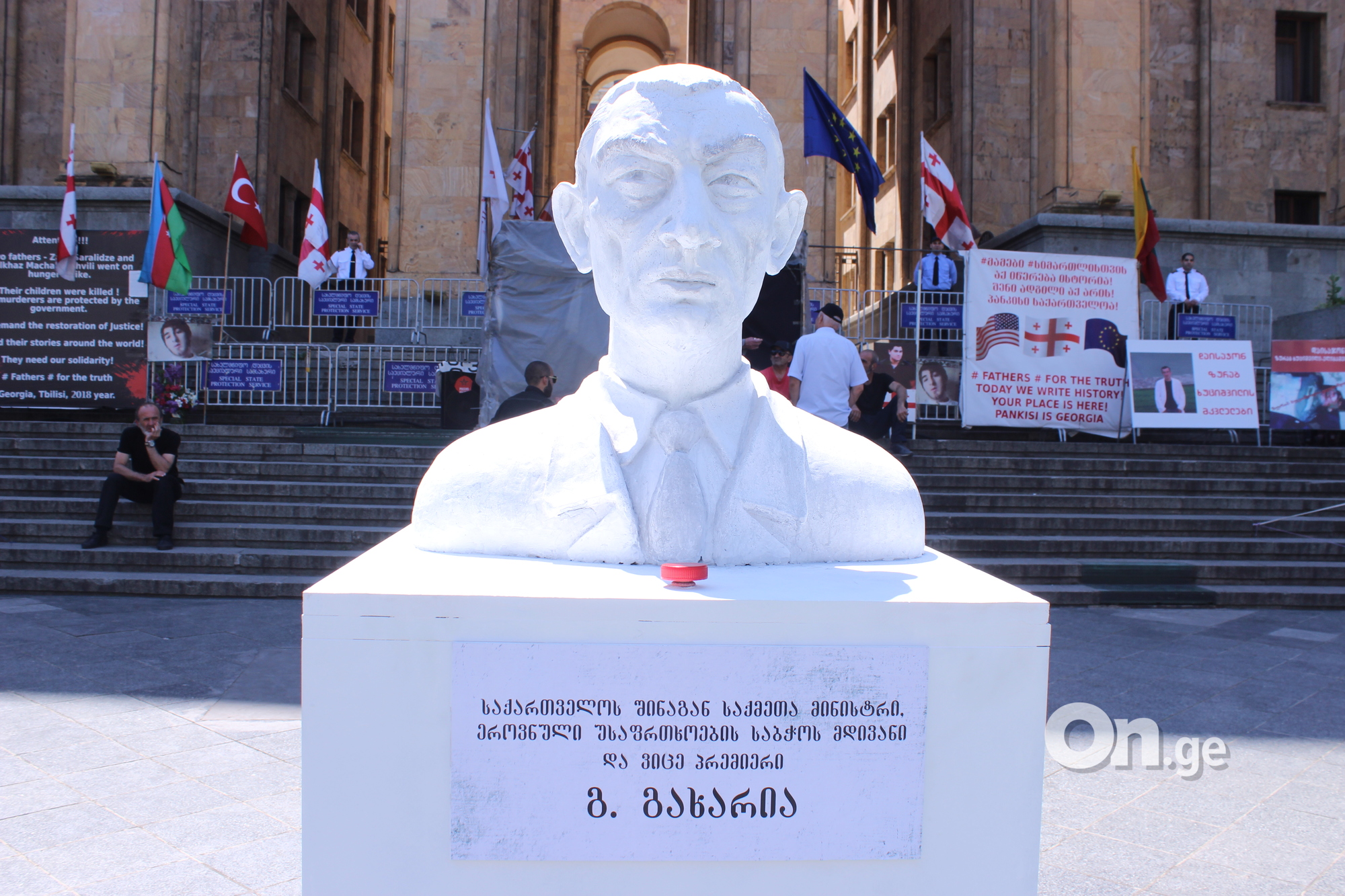

Georgian drug policy reform advocates have marked the anniversary of police raids on night clubs Bassiani and Café Gallery in the capital Tbilisi.
Recently formed advocacy group 12 May, named after the night of the raids, draped banners over bridges and on public spots in Tbilisi bearing anti-government messages. These included references to the raids, the country’s harsh drug policies, as well as ironic references to their environmental policy, alleged control over the media, and scandals over leaked tapes.
[Read on OC Media: Analysis | Georgia’s tapes scandals suggest something is rotten at the top of Georgian politics]
In an address published on the group’s website on Sunday morning, they said that on the night of the raid ‘the Georgian government pointed a gun at the people gathered in free spaces to dance and got in response the unity of tens of thousands of committed individuals.’
Addressing the government directly, the post said: ‘not only do you not love this country, but you also have no hope of changing it, because you don’t know how to do it […] What you fear is a voice calling for change.’
Another group of activists placed a white bust of Georgian Interior Minister Giorgi Gakharia in front of the parliament building in Tbilisi.
The installation had a red button, which when pushed, played an audio recording of Gakharia apologising from last year’s protests.
The raids
Gakharia apologised in front of thousands of protesters, predominantly young people, at the same spot on Rustaveli Avenue on 14 May 2018, after negotiating with the leaders of the protest.
Protesters had demanded his resignation after heavily armed police raided two of the city’s most popular nightclubs in the early hours of 12 May.
Chaos erupted after police forcefully dispersed a spontaneous rally in front of the Bassiani nightclub immediately after the raids, and several journalists were injured during the brawl.
[Read more on OC Media: Interior minister apologises over Tbilisi nightclub raids as far-right groups plan daily protests]
Zuka Berdzenishvili, one of the creators of the Gakharia bust, told the Georgian Public Broadcaster that the idea behind the installation was to point out that Gakharia’s apology ‘had no value’, and that he still owed an apology to the public, which was now available through the bust.
‘He apologised in front of the public exactly at this spot a year ago for violent acts committed by the system. Then he promised to make up for all of it. Among the promises were to prioritise human security and to dismantle repressive drug policies, among others. None of these was fulfilled. Instead, to the contrary, the problems got worse’, he said.
Demonstration proceeds in front of the Georgian Parliament where protesters dance to electronic music after yesterday’s raid on nightclubs #Bassiani #tbilisi pic.twitter.com/mgBAQhOatf
— OC Media (@OCMediaorg) May 12, 2018
Gakharia, who since December 2017 has also held to post of vice prime minister and who was recently appointed the head of reformed National Security Council, argued on several occasions that there could be no ‘no-go zones’ for police, and that there had been a decrease in drug overdoses after the raids.
‘We will protect the freedom of expression of this bust just like we did then [in 2018]’, Gakharia said on Sunday.
He also insisted that the government had ensured freedom of speech ‘of all parties’ during the protests.
On the night of 13 May, police escorted those protesting against the police raids away from the parliament building, ultimately giving the spot to a far-right counter-rally that denounced the ‘propaganda of drugs and the LGBT’.

The frustration among those participating in what was dubbed the ‘rave revolution’ last year grew on Monday after news broke that on the previous night, police briefly detained Zviad Gelbakhiani, a co-owner of Bassiani, and Dato Laghidze, one of the original members of drug reform group the White Noise Movement.
Stalemate and failed cannabis legalisation
On the occasion of the anniversary, local rights group the Human Rights Monitoring and Education Centre (EMC) accused Gakharia of failing to deliver his promise to ‘solve the drug policy reform issue “within days”’ of last May’s protests.
EMC said the government and parliament’s legal affairs committee which is controlled by the ruling Georgian Dream party, have been silent regarding this process and have yet to reach out to drug policy reform advocates.
According to EMC, while the ruling party ‘relegated just and progressive decisions for the constitutional court to make’, the expectations of those imprisoned on drug charges were never met.
Following a Constitutional Court ruling that legalised cannabis use a month and a half after the May 2018 protests, the interior ministry surprised the public with their own plan to legalise cannabis production and exports.
Facing protest from the Georgian Orthodox Church in September, the government dropped the idea and also adopted a set of restrictive measures for cannabis use in December. The government did not return to the issue of decriminalising drug use.







